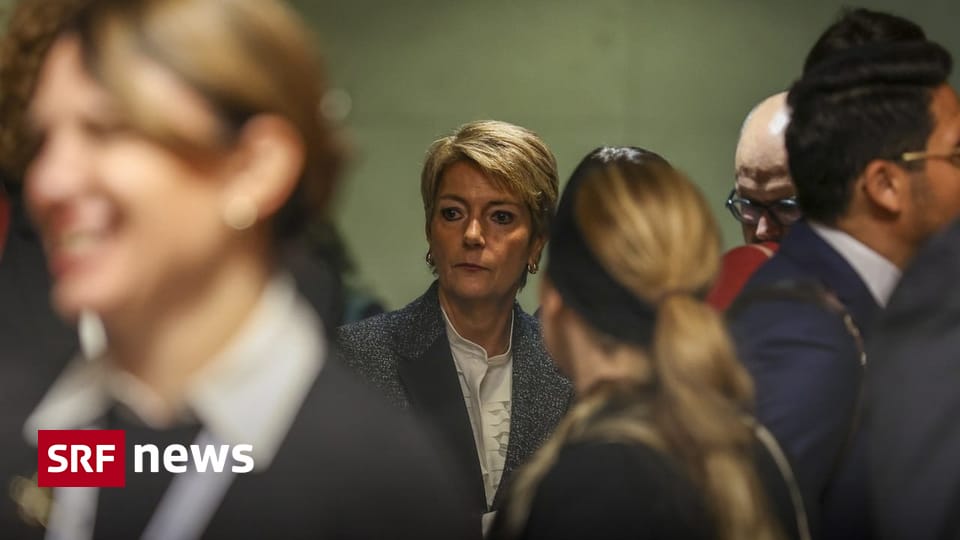- EU interior ministers in Luxembourg spoke of the large number of migrants who come to the EU via the Balkan route.
- Federal Chancellor Karin Keeler-Sutter was pleased that Serbia intends to align its visa policy with that of the Schengen area.
In this meeting, “the Persians and the rider were really invited”: that is, “the visa policy of the Serbs is responsible,” Keller-Sutter said Friday after meeting her counterparts.
According to the head of the Ministry of Justice and Federal Police (FDJP), several countries – including Switzerland, Germany, Austria and Belgium – have intervened in the EU Commission and called on it to take action.
Belgrade wants to surrender partially
It is true that most of the refugees who come to the Schengen area via the Balkan route come from Syria and Afghanistan. But since the beginning of the year, the number of immigrants from Turkey, Tunisia, India, Burundi and Cuba has risen sharply. People from these countries can travel to Serbia without a visa. Many of them then move to the European Union with the help of smugglers. However, they have little chance of obtaining asylum in the Schengen area.
According to the European border protection agency Frontex, some 106,400 refugees and migrants entered the EU via the Balkan route without a valid visa in the first nine months of this year – a 170 percent increase over the same period last year. Across the EU, 228,000 people came to the EU without a valid visa in the first nine months – the highest number since 2016.
If Serbia keeps its promise, it will calm things down a lot.
After all, Vice President of the European Commission Margaritis Schinas, who is responsible for migration, visited several Balkan countries at the beginning of October. According to Karen Keeler-Sutter, Belgrade has now pledged to cancel visa agreements with Tunisia, Burundi, Cuba and India by the end of the year.
The member of the Federal Council stressed that “this is good news.” But one must check whether Serbia will keep its promise. If that were the case, the justice minister said, “it would calm the situation a lot.”
Caption:
The President of the EJPD, Karin Keller-Sutter, expressed her happiness with Serbia’s assumption of the visa policy in the Schengen area.
Keystone/EPA/Julian Warnand
Although the number of asylum seekers has also increased in Switzerland, it is above all a country of transit. According to the head of the EJPD, asylum seekers primarily go to those countries where there is already a large diaspora. “That’s why so many Afghans go to the UK, for example.”
Swiss agreement with Greece
On the sidelines of the ministerial meeting in Luxembourg, the Minister of Justice also signed the Migration Agreement with Greek Minister Notis Mitarakis as part of Switzerland’s contribution to cohesion. Switzerland’s contribution to Greece is 40 million Swiss francs. With a total of 1.3 billion francs over ten years, the economic and social disparities between EU countries will be reduced and EU countries will be supported in dealing with immigration. 190 million earmarked for immigration.
To date, Switzerland has signed agreements with eight countries of the European Union in the field of “economic and social inequality”. In the field of immigration, the agreement with Athens is the first of its kind.

“Award-winning music trailblazer. Gamer. Lifelong alcohol enthusiast. Thinker. Passionate analyst.”






More Stories
Heidi Klum is confused when she appears on American television: this is what Bill Kaulitz says
Prince Harry is facing his next bankruptcy in court
Invictus Games: Prince Harry has to choose between the UK and the USA